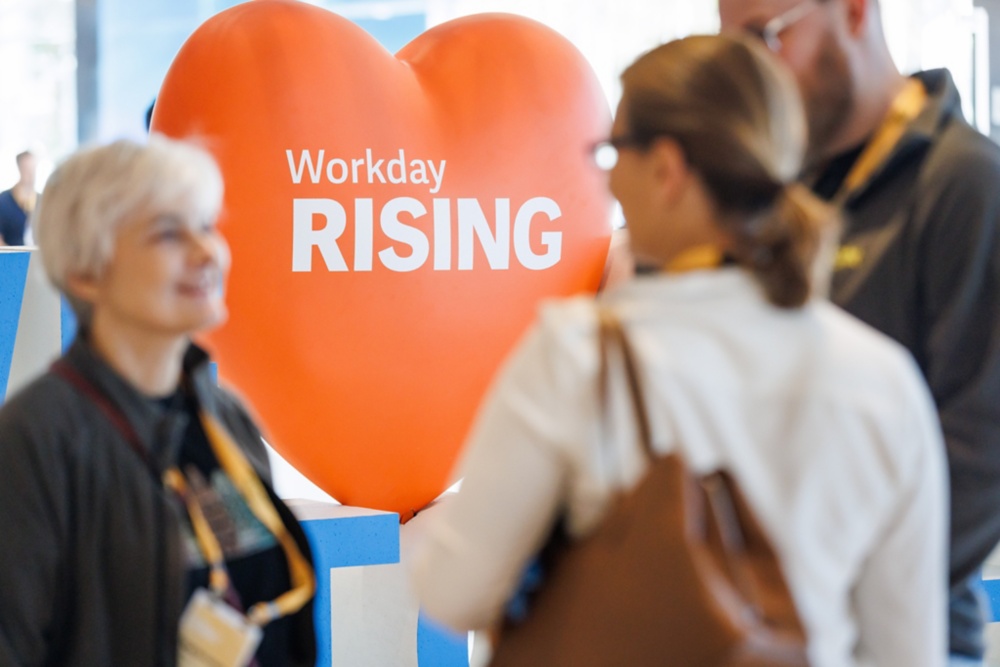Workday held the US leg of its annual user event in San Francisco this week. Workday Rising was a vibrant mix of Human Resources (HR) people, finance specialists and software application development professionals all blended into one heady mix of combined interests.
“Hey, how is your Rising?,” people asked each other in the corridors and hallways of the cavernous Moscone center, fuelled up with intent and interest in automated workplace services.
Enterprise planning processes
As part of what was a positive raft of Artificial Intelligence (AI) related announcements with generative AI (gen-AI) playing a lead role, Workday announced new innovations intended to help streamline enterprise planning processes across finance and human resources.
Workday unveiled new gen-AI capabilities designed to deliver a streamlined user experience in Workday Adaptive Planning. These new capabilities are hoped to enable users to surface data quickly, uncover contextually relevant insights and get recommended actions based on those insights – all using conversational text to navigate the system.
By simplifying the process of finding and analyzing data in Workday Adaptive Planning, users will be able to make quicker, more strategic decisions about their businesses.
“In today’s ever-evolving business environment, organizations are required to model more complex business scenarios, manage changing business needs, and expand planning to more users across the enterprise,” said Dennis Yen, general manager of Workday Adaptive Planning, Workday. “By demonstrating the possibilities of using conversational AI, we are showing our commitment to delivering an easy-to-use, highly flexible planning solution to help our more than 6,300 Workday Adaptive Planning customers automate key business processes and drive efficiency and accuracy.”
Bottom-up workforce planning
Customers using Workday Human Capital Management (HCM) and Workday Adaptive Planning will now be able to access a new user interface designed to help bottom-up workforce planning across finance and HR. This new interface – built within Workday HCM – provides a guided experience for workforce planners to update existing positions and create new positions.
The changes made in Workday HCM are then automatically reflected in the financial and aggregated headcount plans that reside in Workday Adaptive Planning, fostering collaboration and connection across the business.
A new automated headcount reconciliation process also enables users to quickly compare real-time cost variances between the headcount plan and actual new hire activity down to the position level. For example, if a new hire date is pushed back by a month or the accepted new salary offer is above or below budget, Workday Adaptive Planning will show the cost impact of those changes in the financial and workforce planning models, providing early visibility into related forecast adjustments. Workday also introduced a new planning configuration manager that simplifies the setup process and reduces maintenance, helping to lower the total cost of ownership. Workday insists that automating these once-manual processes reduces the risk for error and saves planners time.
Painless reporting
“With Workday Adaptive Planning, we’ve been able to empower our FP&A and HR teams to plan and reconcile faster with access to real-time data, intuitive interfaces and painless reporting,” said James Choi, director of financial transformation and systems, Shutterstock. “Having all of our workforce and financial data centralized in Workday has resulted in more flexibility, agility, and 10,000 employee hours saved annually.”
With the next generation of Elastic Hypercube Technology (EHT), the intelligent modeling engine that uses AI to enhance speed and performance, Workday Adaptive Planning serves planners across the enterprise.
Workday also announced a new program with MIT Sloan Management Review Connections to assist financial professionals in navigating work. The program will offer a certificate program on AI and ML for Finance.
The series features experts from MIT Sloan Initiative on the Digital Economy, Stanford Human-Centered AI Institute and Workhelix, Deloitte Consulting LLP and AICPA-CIMA sharing thoughtful perspectives and emerging best practices on how finance professionals can use AI and ML to navigate, drive innovation and thrive.




